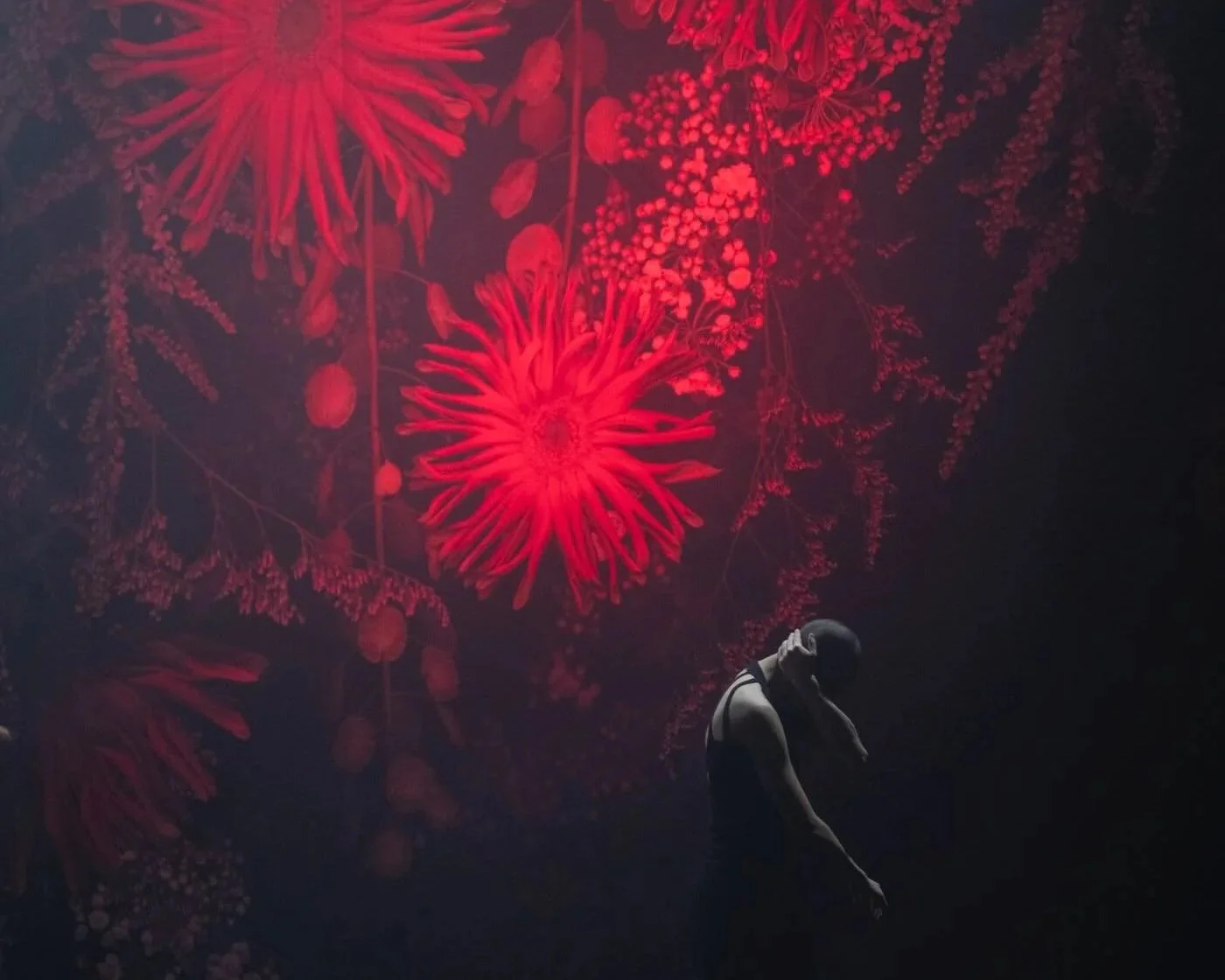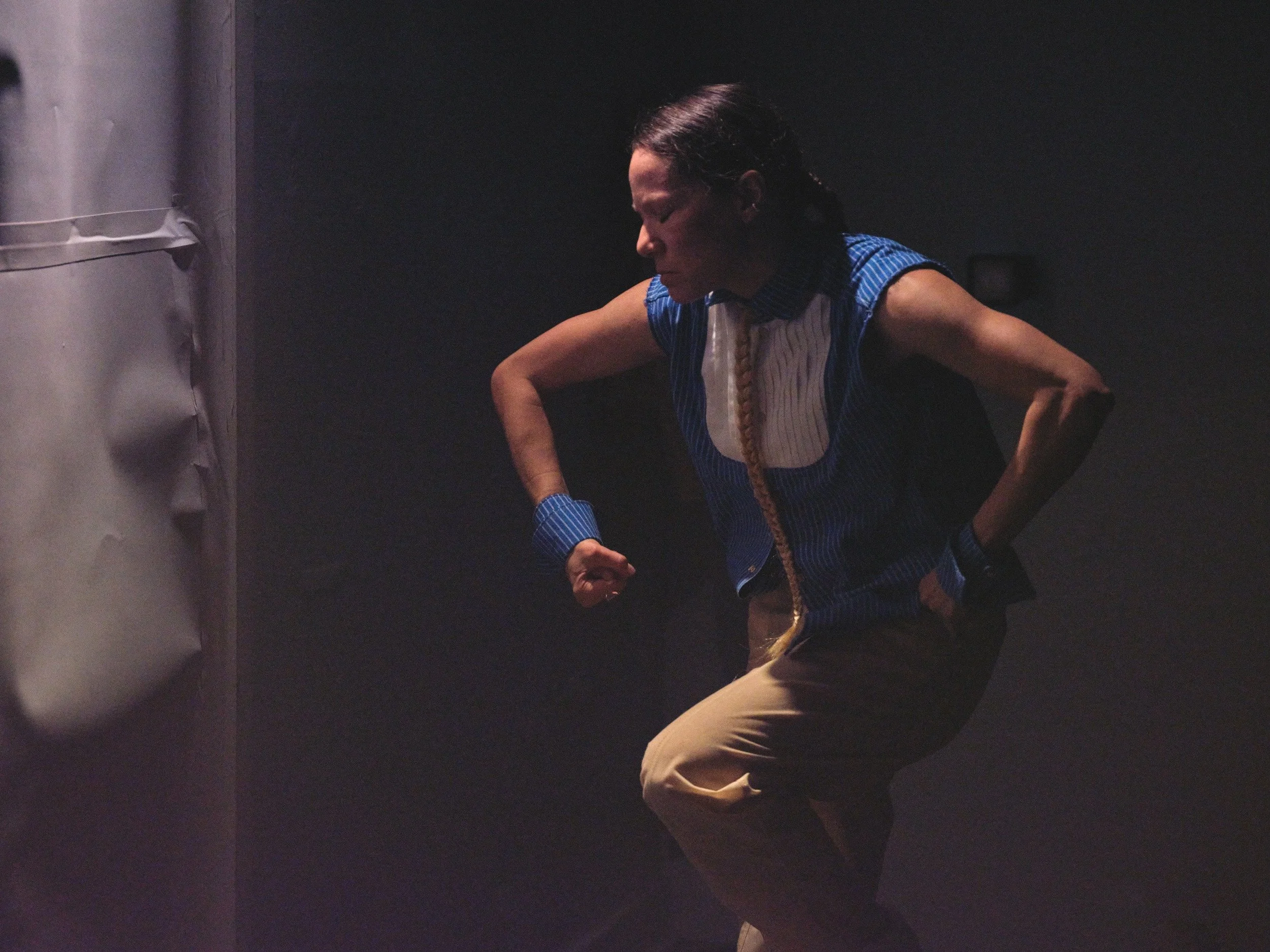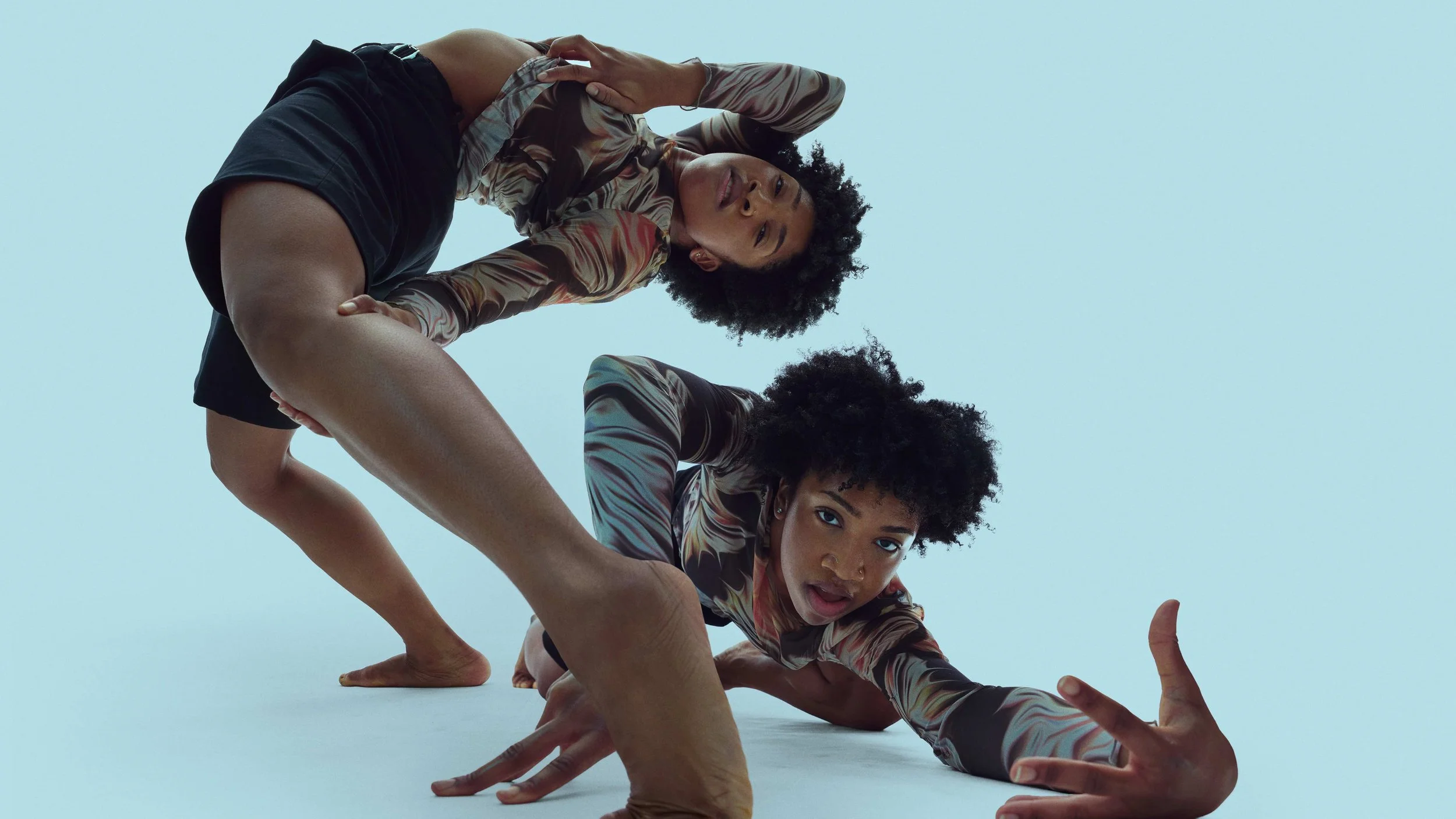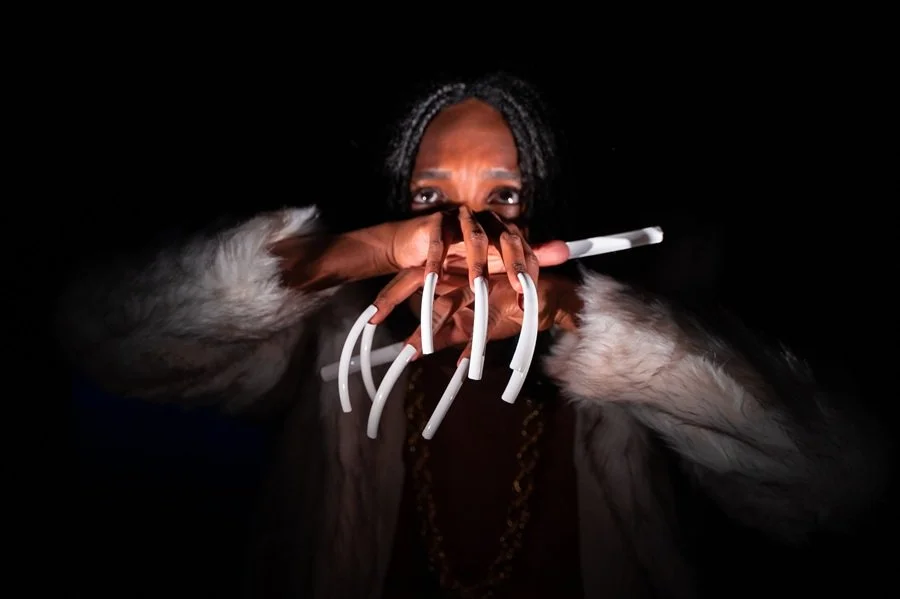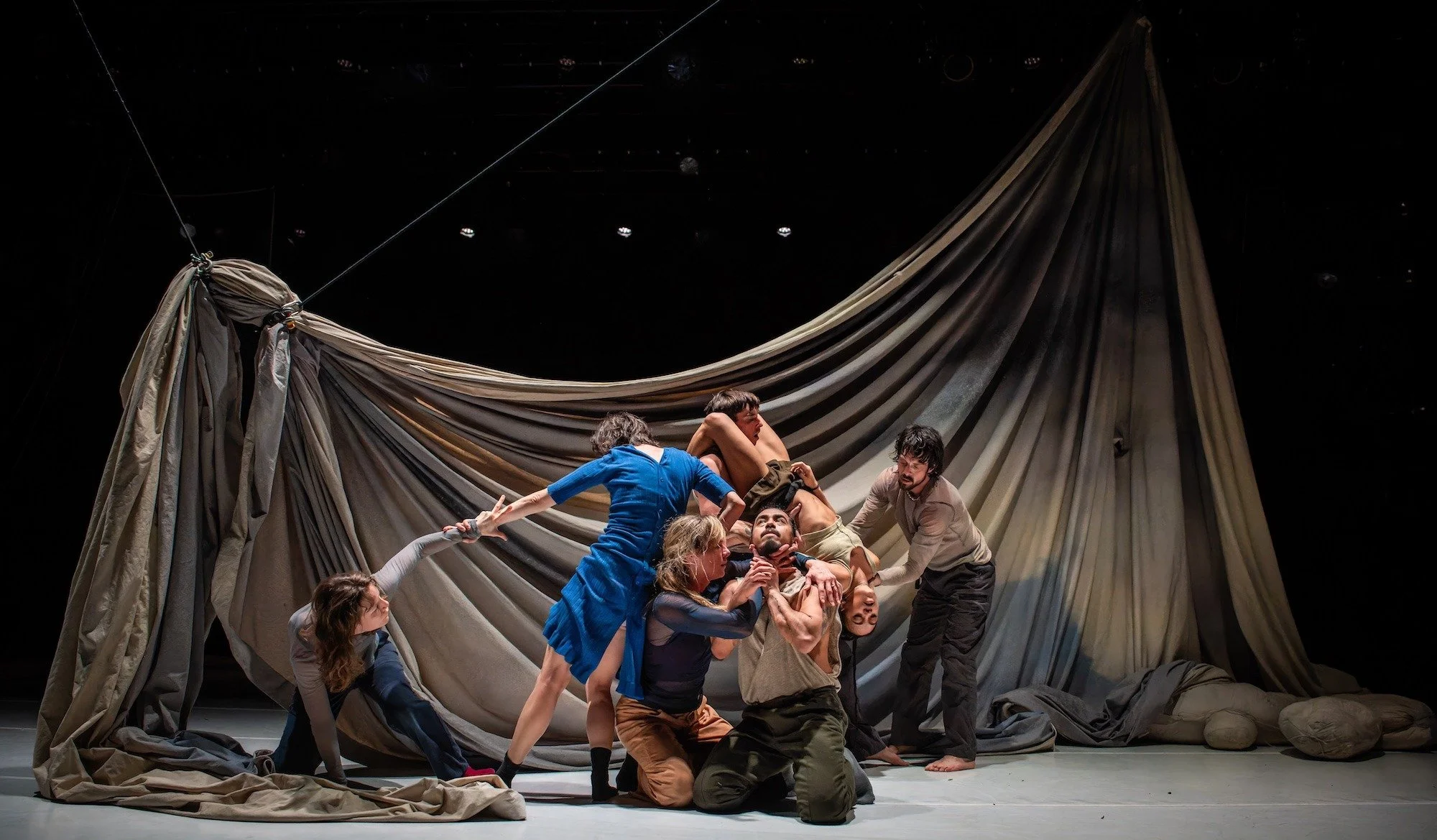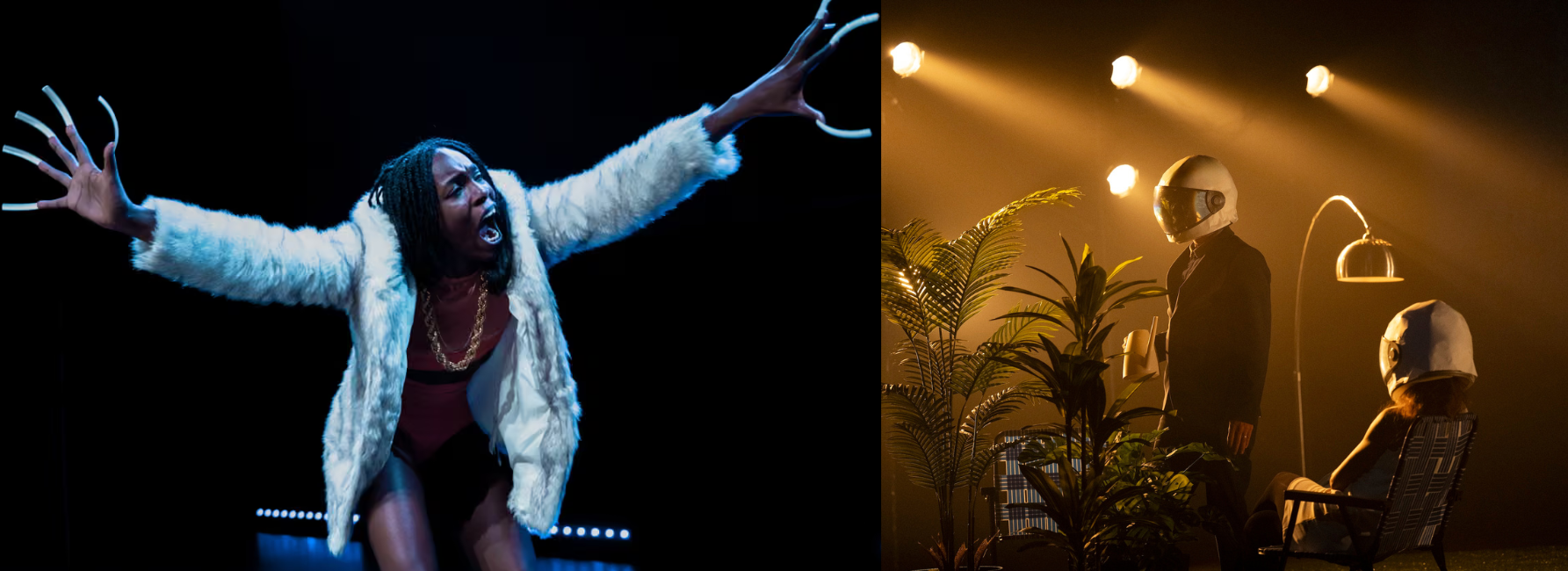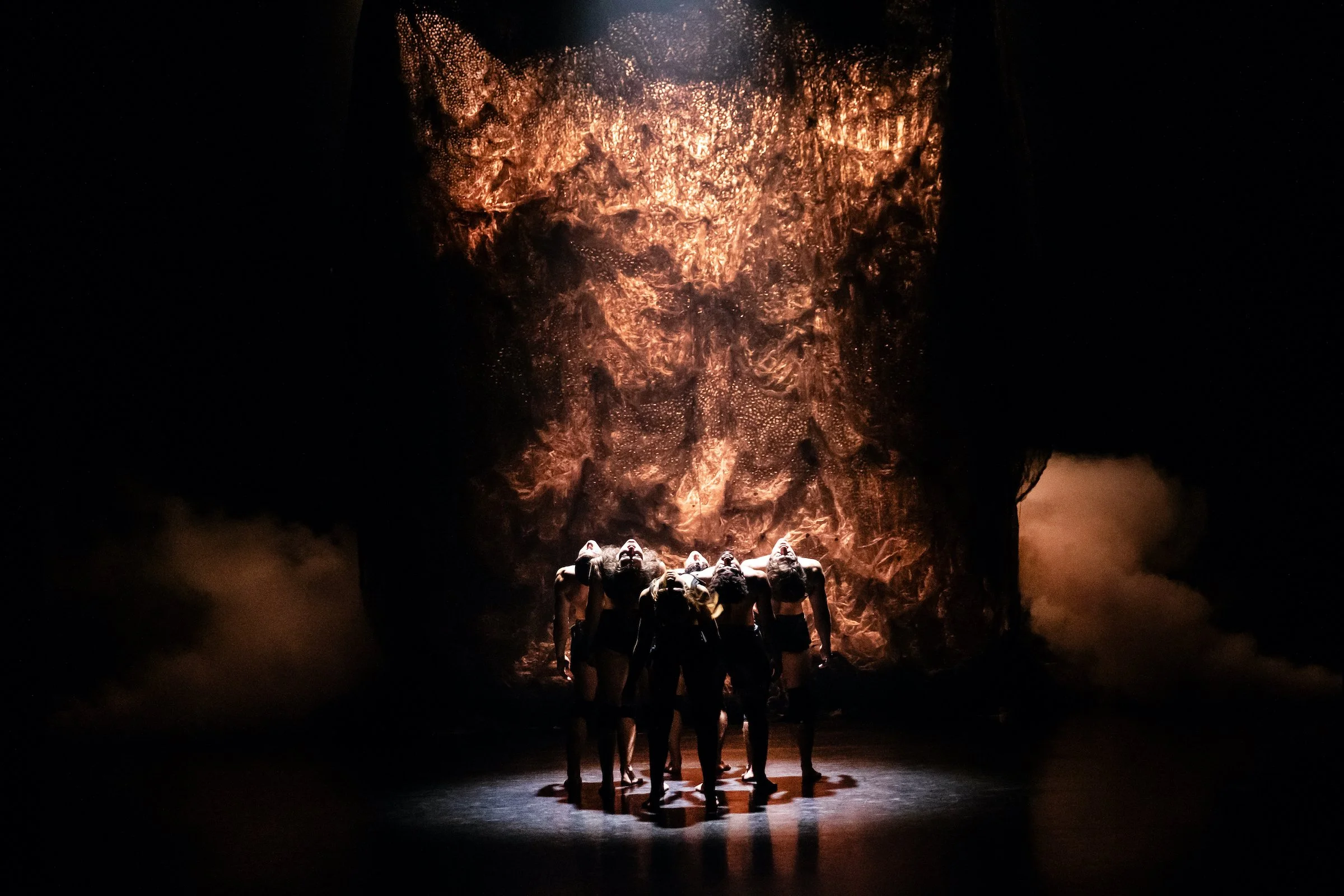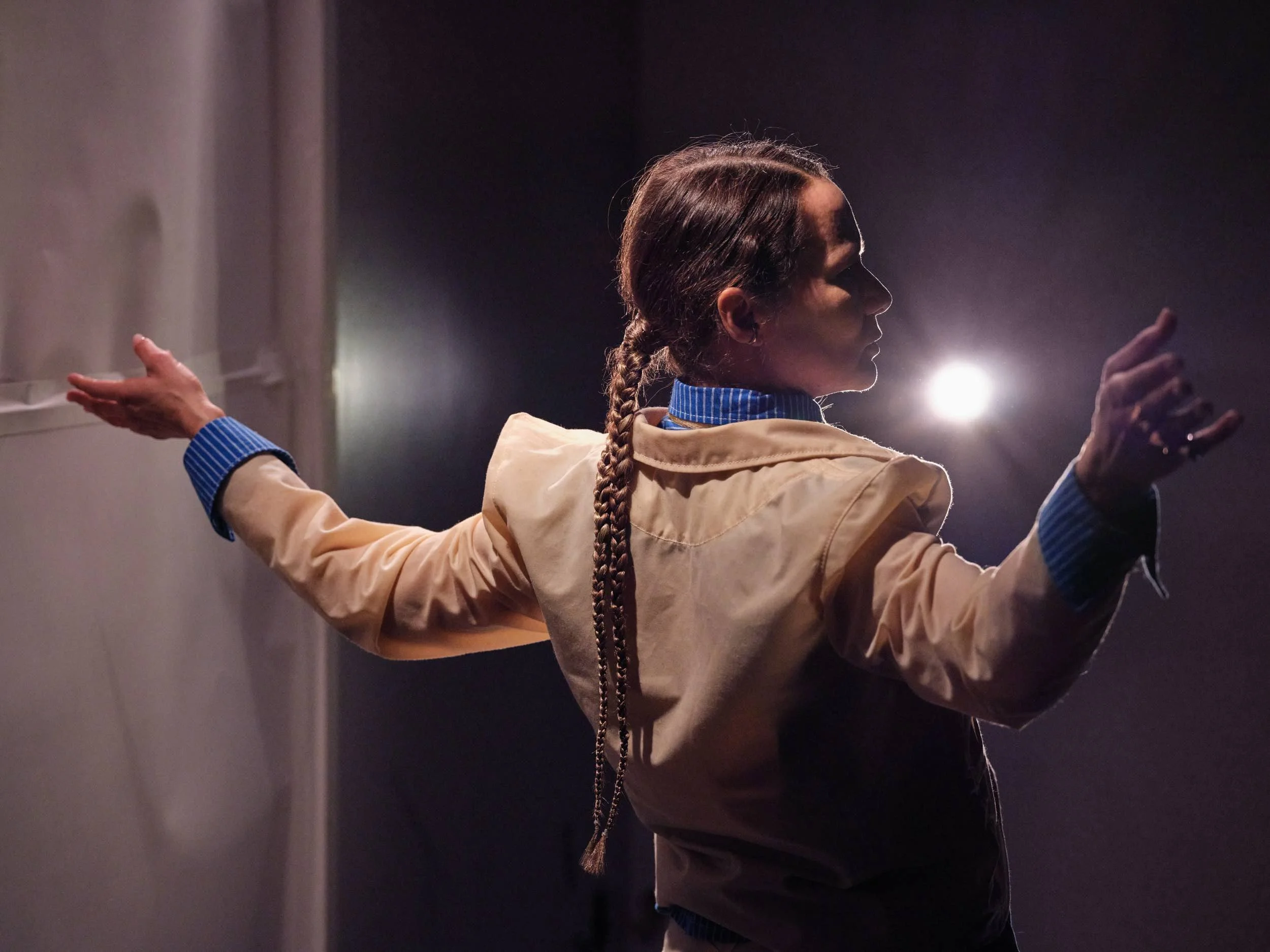Dance artist Ted Littlemore draws on skills from drag to accordion-playing for Solo for Orpheus
The Ne.Sans Opera and Dance performer has formed a deep bond with the character from Greek mythology
Ted Littlemore pulls out both clowning and squeezebox skills Solo for Orpheus. Photo by Andi McLeish
The Chutzpah Festival presents Ne.Sans Opera & Dance’s Solo for Orpheus as part of a double bill with Alexis Fletcher’s light in the rafters on November 16 and 18 at 7 pm at the Norman and Annette Rothstein Theatre and online
DANCE, DRAG, AND music: that unique blend of expertise has helped make Ted Littlemore a busy artist in pandemic times.
A trained pianist who has performed in ensembles from folk trios to a cappella groups, Littlemore also takes the drag stage under the name Mila Dramatic (crowned Vancouver’s Next Drag Superstar in 2016). Around 2018, he started pursuing contemporary dance, graduating from Modus Operandi and eventually taking the stage for everyone from FakeKnot to Action at a Distance; in the spring, he even helped launch the aptly named new dance company CAMP.
Littlemore draws on all his background skills this fall in not one but two productions that explore the Greek mythological character Orpheus. The first, Solo for Orpheus, choreographed by Idan Cohen for his Ne.Sans Opera and Dance, premieres at the Chutzpah Festival this week. Then, in early December, Littlemore will dance in an innovative rendition of Christoph Willibald Gluck’s 1762 opera Orfeo ed Euridice, a coproduction between Vancouver Opera, Ne.Sans, and The Dance Centre; it’s directed and choreographed by Cohen, with Leslie Dala conducting.
“It’s lovely to come to dance after all these other things and to find that it’s not a problem, that it’s not a hindrance that you had a trial run in a prior career path—that it can be incorporated,” Littlemore reflects, speaking to Stir on a break from rehearsing Solo for Orpheus. “I’ve found a company, and a creative process, where I can really draw on all those things—and that’s becoming true of a lot of my work.”
Sometimes, Littlemore’s influences play out in the addition of dramatic makeup, as they do in the surreal-cabaret-tinged solo for Cohen; sometimes they show in the interweaving of song into the dance, as they did in the live, vocally generated sound of Tuning, with Alexis Fletcher and Vanessa Goodman at Dancing on the Edge last summer. In Solo for Orpheus, Littlemore even busts out his accordion chops—an instrument he picked up touring with Shari Ulrich over several summers a few years back.
Ted Littlemore. Photo by Chris Randle
Littlemore’s wide-ranging artistic talents make him a perfect fit for Cohen’s creative take on the mythical Orpheus.
“He’s the ultimate jester, or clown—and that’s been a really nice way to incorporate my experience in drag and its exaggerated emotion and facial gesturing,” Littlemore explains. “It’s that posturing and campy attention to glamour.
“I find it very fun; I find it very generative as a creator….I feel like I approach it from such a character-based place.”
In Greek mythology, and Gluck’s opera, Orpheus is a musician who uses his divine music and poetry to charm his way into the Underworld to try to bring his wife, Eurydice, back into the world of the living. But in Cohen and Littlemore’s interpretation, he also symbolizes art’s ability to help us cope with a world turned upside-down by grief (or pandemic grief, as the case may be). In the dance solo at Chutzpah, Littlemore’s Orpheus stands alone in front of the audience, not as a god, but as a performer-entertainer-clown—sometimes struggling under our watchful eyes.
“There’s a lot of loneliness in the solo, and a lot of desperation, and a lot of breakdown,” Littlemore hints. “I think it looks like a bit of an old time show—a Charlie Chaplin cabaret. And it feels intimate.”
It’s the first full-length contemporary-dance show where Littlemore has had to hold the stage on his own. That’s where he can pull from his drag work—just as he does to build this compelling version of the Orpheus character. “Solo [work] in a drag context is so much about assuming you’re a star,” he says, adding he draws from the fact "faux celebrity is so much a part of my practice.”
The same myth gets a separate but thematically connected treatment in the full production of Orfeo ed Euridice at the Vancouver Opera later this year, says Littlemore, who dances while a cast of operatic singers tackles the music. “It’s the other side of a very similar coin,” he says of the show that’s also helmed by Cohen. “It’s a different world—it’s significantly less cabaret and less broken-clown-playing-the-accordion-death-opera.”
Through both interdisciplinary productions, Littlemore has become deeply familiar with the character of Orfeo/Orpheus—sometimes surreally so. As the dancer-musician-drag-artist puts it: “I was preparing my solo the other day and I thought, ‘Oh my god, I feel like I’ve met this person.’”





